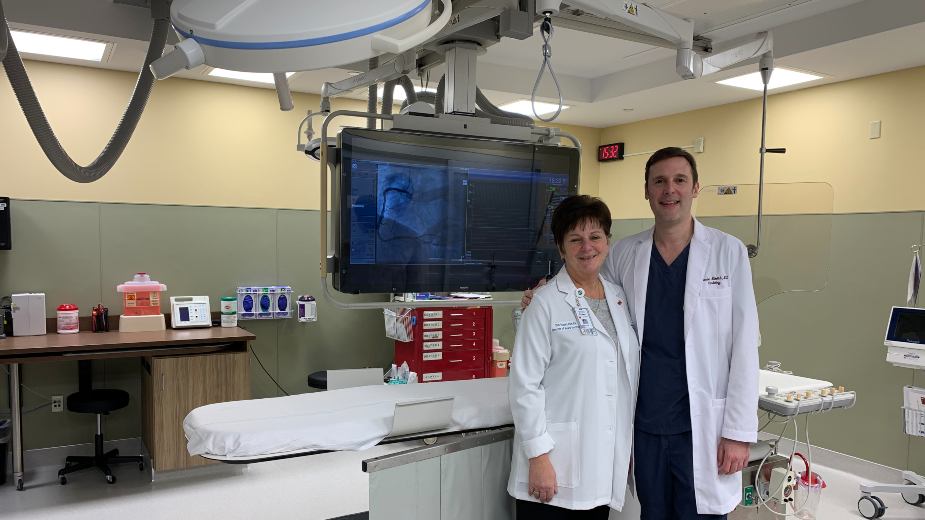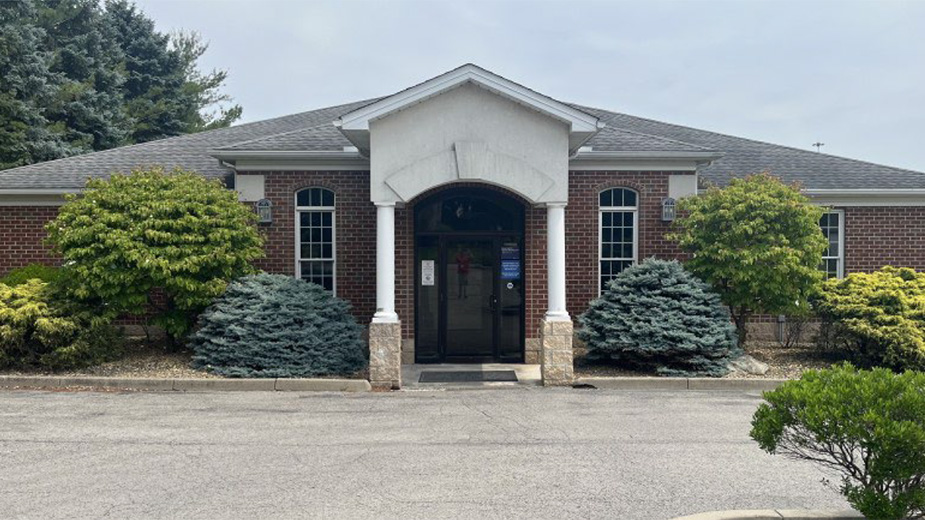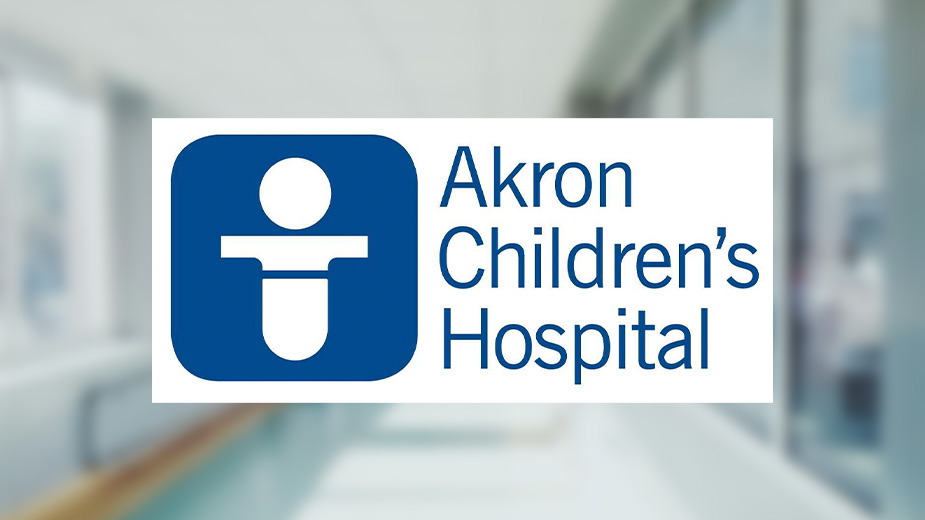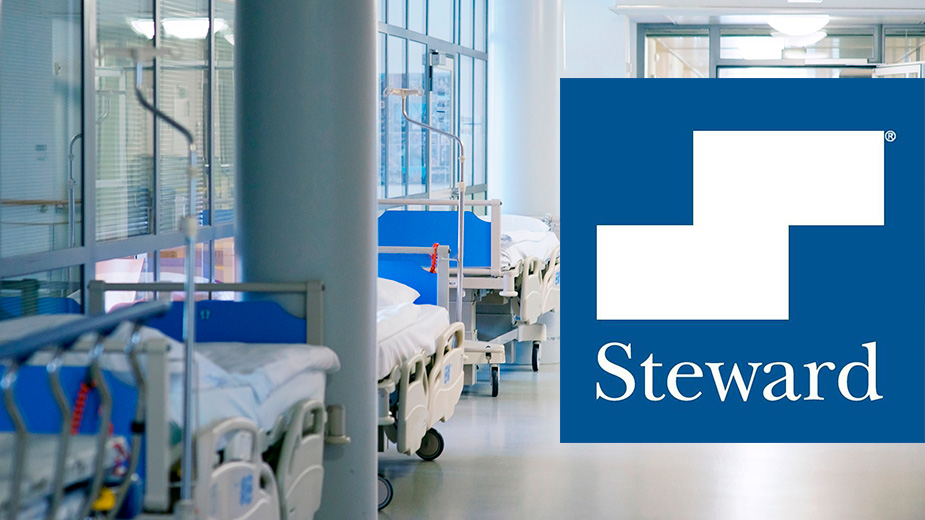Sharon Regional Opens New $3.5M Heart Lab
SHARON, Pa. – Many of the conversations Dr. Brandon Mikolich had at the dinner table while he was growing up involved medicine, and it eventually became a natural progression, he said.
“Both of my parents were doctors,” said the cardiologist and medical director of the cardiology department at Sharon Regional Medical Center. “Once I went to medical school and learned about how heart disease touches many Americans every day, I became enamored and pursued a career in cardiology.”
To provide safer, more efficient cardiac care to Mercer County residents, Sharon Regional invested $3.5 million into a new cardiac catheterization lab. Mikolich attended the ribbon cutting for the lab on Feb. 7, which was National Wear Red Day at the hospital.
By seeing a need to have better imaging and a more efficient way of taking care of men and women, Sharon Regional approached the Steward Health Care System about the new lab, Mikolich said. Through a collaborative effort, Steward and Sharon Regional were able to raise funds for the lab, he said.
According to Sharon Regional, the new lab is designed for catheter-based procedures to treat a wide range of clinical problems including coronary artery disease — a leading cause of heart disorders in the United States. Before the new lab, the hospital had two other interventional labs that could do adequate work in terms of placing stents and angioplasty for people who have acute heart problems or chronic heart problems, Mikolich said.
“This lab is an improvement on top of that,” he said. “It allows us to pursue more advanced techniques, to pursue techniques more efficiently and to take images of cardiovascular and vascular anatomy with less radiation exposure.”
Having a heart cath can be a scary process no matter how old or young someone is, but when someone goes through the new laboratory, staff will make sure they are comfortable as possible and they will be given medications to help them relax, Mikolich said. Once access to the arteries in either the wrist or groin is obtained, it gives the staff a highway to the heart, he said.
“The good news about that is there’s no nerves in those arteries, so once we have access, you can’t feel us moving around and taking pictures,” Mikolich said.
The Mercer County community depends on Sharon Regional for high-risk stenting and angioplasty procedures, said Dr. Debbie Yeager, a registered nurse and director of the heart and vascular center at Sharon Regional. Yeager says the new lab will allow staff at Sharon Regional to serve patients better.
Yeager is passionate about treating coronary artery disease because it has affected her family and her husband’s family, she said. During her first year of nurse’s training, her father died of a massive heart attack at age 40, which left Yeager and her siblings at home with their mother.
“My dad never made it to the hospital,” Yeager said. “He died in the field and I always think about maybe had he made it to the hospital, we could’ve done something for him.”
People at least 18 years or older are able to use the cath lab, Yeager said. In the 1990s, Sharon Regional did diagnostic heart catheterization in a small lab, and in the year 2000, the hospital started doing coronary interventions and started treating patients who had heart attacks, she said.
“Up until that point, if you came to us, we had to send you somewhere else,” Yeager said. “Time is muscle. The longer it takes to get your coronary artery open, your muscle is dying and once your muscle is dead, it’s dead. There’s no coming back.”
The national standard to open a coronary artery is 90 minutes and the average time at Sharon Regional is less than 60 minutes, Yeager said. In addition, open heart back up is available 24/7 at Sharon Regional, which is critical because it allows staff to treat the highest risk patient safely, she said.
“We treat every patient as if they’re mom, dad, brother or sister,” she said. “This team is what makes these patients feel comfortable coming in – holding their hand and reassuring them, and that’s what does it for us and that’s why people come back.”
In 2019, Sharon Regional performed more than 1,000 diagnostic heart caths. With the new lab, the hospital expects that number to increase to 1,200 to 1,500 this year, Yeager said.
“I’ve been here for 10 years, and in that time we have been on a constant journey to improve cardiovascular care in the Valley,” Mikolich said. “We pride ourselves on providing high-quality, acute care for people.”
To avoid the pitfalls of heart disease, people need to consider having more healthful eating habits and should exercise regularly, Mikolich said. A low-fat, low-cholesterol diet is important, and a large issue for many people is increased carbohydrates in their diets. Since they’re found in most delicious foods, it can be hard to avoid, he said.
In terms of exercise, the American Heart Association recommends at least half an hour of moderate exercise three to four times per week and at least 75 minutes of vigorous exercise per week, Mikolich said. If someone is shooting to exercise between 30 and 45 minutes five times weekly, they’re on to a good start, he said.
According to the American Heart Association, cardiovascular disease kills one woman every 80 seconds and takes more lives than all forms of cancer combined. While 80% of cardiovascular diseases can be prevented through changes in diet and lifestyle, disparities in care for women’s heart and brain health continue to exist, the association reports.
Pictured: Dr. Debbie Yeager, registered nurse and director of the heart and vascular center at Sharon Regional, and Dr. Brandon Mikolich, interventional cardiologist and the director of cardiology at Sharon Regional.
Copyright 2024 The Business Journal, Youngstown, Ohio.



